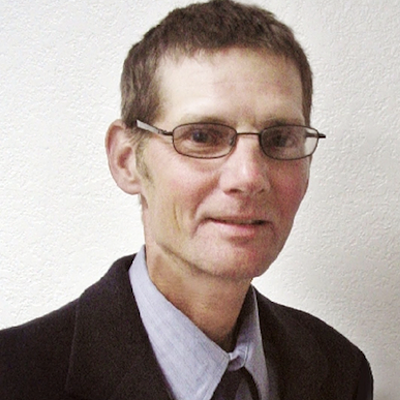Kino turned 25 last month and is more than two years away from oppressive meddling by a committee to which the Board of Supervisors ceded control in 1997.
But the silver anniversary has been marred by mold infestation that prompted closure of the fourth floor of the hospital at 2800 E. Ajo Way.
Hospital and county officials are blaming the mold on faults in Kino's design and construction. But several nurses and other employees who asked to not be identified for fear they would be fired said janitorial services had been curtailed.
It also serves as an embarrassment for a hospital medical and nursing staff proud not only of the care they provide but also of Kino's reputation for cleanliness.
Kino Administrator Scott Floden, previously the administrator of bankrupt Tucson General Hospital, did not return calls. He has been attempting to pare costs as Kino, operating on a $56 million budget for the fiscal year that ends June 30, will have losses already budgeted at $9 million.
The official version is that a nurse manager of the medical and surgical unit alerted Kino Quality Management and Safety on February 11 about water leaks and an intense odor. But The Weekly was told that a doctor checking on a patient saw black mold in the bathroom of the patient's room. Mold was eventually found on seven bathroom vanities in patient rooms on the southwest part of the fourth floor and in two more patient bathrooms on the southeast wing.
Officials did not move patients from the affected rooms until three days had passed. Instead, Kino administrators huddled with other county officials, including from risk management and facilities management.
Fifteen of the roughly 40 rooms on the floor had obvious mold contamination. Kino, built with bonds approved by voters in two county elections, has been licensed for 212 beds, but operates with about half that. And about half of the inpatient space has long been used for psychiatric care.
Mark Sneller, a microbiologist who has long studied mold and allergens, said the mold could be harmful to patients with suppressed immune systems. "It could lead to serious complications for some patients," Sneller said.
Spores could be become airborne and travel in the hospital's ducts and air system, said Sneller, who directed the county's pollen and mold program until the Board of Supervisors closed the popular service several years ago.
A county contractor, Environmental Strategies, removed what Floden said in a March 5 memo were "offending vanities" and no mold was seen on walls. But further work showed extensive water damage that officials are attributing to poor design and the lack of waterproofing in showers. Walls were stripped to reveal mold.
Preliminary studies showed penicillium and aspergillus, with spore counts that ranged from 50 colonies per cubic meter to 1,076 per cubic meter, reports show.
"It's a pretty low concentration," Sneller said. Some homes he has checked have had rooms with mold counts 20 times higher.
"I prefer the proactive approach," Sneller said. "The county is reacting. Janitors in most cases are trained to handles this. Ideally, any facility with water, or any hospital, should be checked regularly."
Floden has asked county Facilities Management to remove contaminated material, make repairs and set up air quality testing.
Levels at Kino are not likely to threaten workers in good health, Sneller said.
Still, the Arizona Department of Occupational Safety and Health sent the county a notice of complaint on March 6. It alleges that employees "are experiencing headaches, nausea, vomiting because of mold growth on the ceiling of the mid-surgical unit."
A notice of the complaint, warning Kino employees, was posted at the hospital on the same day.
Nine employees, mostly nurses, have filed complaints saying they have had skin rashes.
The county must now prove, to state Occupational Safety and Health, corrective action.
David M. Parker, the county risk manager, told County Administrator Chuck Huckelberry on March 18 that remodeling will include two bathrooms modified to comply with the Americans With Disabilities Act in each wing, modernization of the fire alarm and pneumatic tube system.











